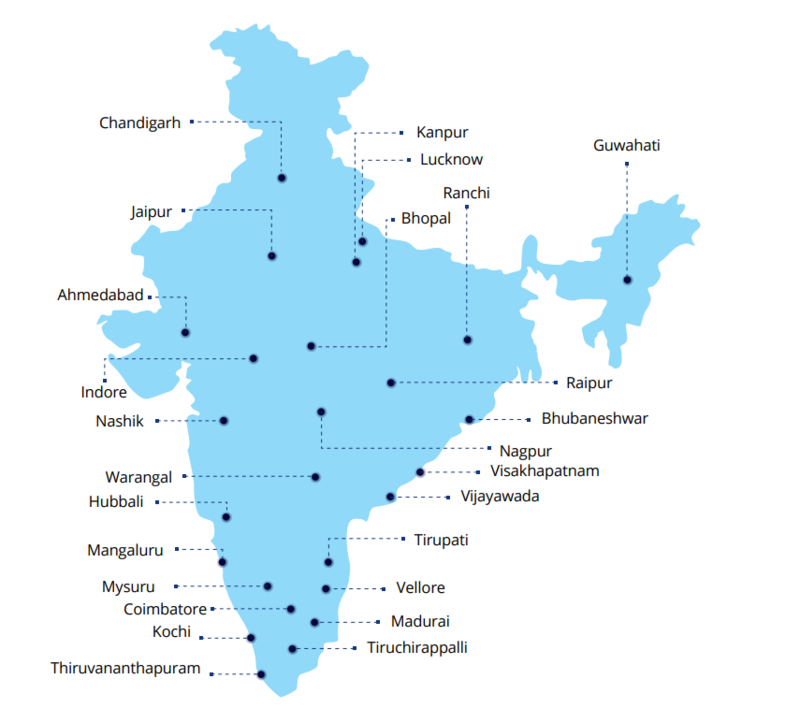

India’s technology industry is reportedly decentralising. According to a recent report by Deloitte and Nasscom, the country’s IT sector is moving from the current seven major hubs — Delhi, Mumbai, Kolkata, Chennai, Bengaluru, Hyderabad and Pune. Presently, the majority of the 5.4 million people employed in the technology industry in India have clustered around these seven major cities, the report stated. The 220-page report is titled “Emerging technology hubs of India”.
Deloitte India Partner Sumeet Salwan said, “While big cities were the focus in the past, the post-pandemic era witnessed a remarkable decentralisation of work across the nation.”
Nasscom Head GCC and BPM Sukanya Roy said that as companies worldwide continue to actively revisit ways of working with an eye on optimising outcomes, costs, and talent, the opportunity and possibility to develop alternative tech hubs are now becoming extremely essential.
“India is expected to have a skilled talent surplus by 2030. These hubs offer companies a compelling blend of advantages: access to a fresh, skilled talent pool, cost-effective operations, and robust infrastructure,” Roy said.
Which are these cities
The report claims that IT companies are moving to 26 tier-2 and tier-3 cities across India. These cities include Chandigarh, Nagpur, , Ahmedabad, Mangaluru, Kanpur, Thiruvananthapuram, Lucknow, Guwahati, Ranchi, Bhopal, Jaipur, Indore, Nashik, Bhubaneshwar, Raipur, Nashik, Nagpur, Warangal, Visakhapatnam, Hubbali, Vijayawada, Tirupati, Mysuru, Coimbatore, Vellore, Madurai, Tiruchirappalli, Kochi and Vellore.
Reasons for this decentralisation
The report said that about 11-15 percent of tech talent is based in tier-2 and tier-3 cities. About 60 per cent of graduates come from smaller cities in key fields, 30 percent of whom relocate to tier-1 cities for employment after graduation. “This trend is fueled by a highly proficient workforce in cutting-edge digital technologies, with about 8 lakh individuals within these emerging hubs adept in the latest tech domains. These emerging cities are witnessing a surge in digitally skilled workforce, with over 100,000 professionals contributing to their growth,” said the report.
The report claims that the next wave of technology hubs will emerge from these cities with incentives like reduced cost of operations, better access to talent pool and lower attrition apart from state government support in terms of infrastructure and policies. “In emerging cities, businesses enjoy a 25-30 percent cost advantage in talent pool costs and a striking 50 percent lower real estate rental compared with mature hubs,” said the report. Companies like Infosys, Wipro, HCLTech and WNS have operations in one or more cities in these emerging hubs.
The startup scene
As for the startup universe, the report highlights that as of 2022, more than 7,000 start-ups are operating from emerging hubs and in fields from DeepTech to BPM services. These emerging companies have grown by 50 per cent from 2014 to 2018, and are expected to grow 2.2× by 2025.
Notably, 13 per cent of the funding in 2022 went to start-ups from tier 2 cities in India, indicating that investors are now comfortable looking beyond urban settings for prospective unicorns.
FacebookTwitterLinkedin
end of article